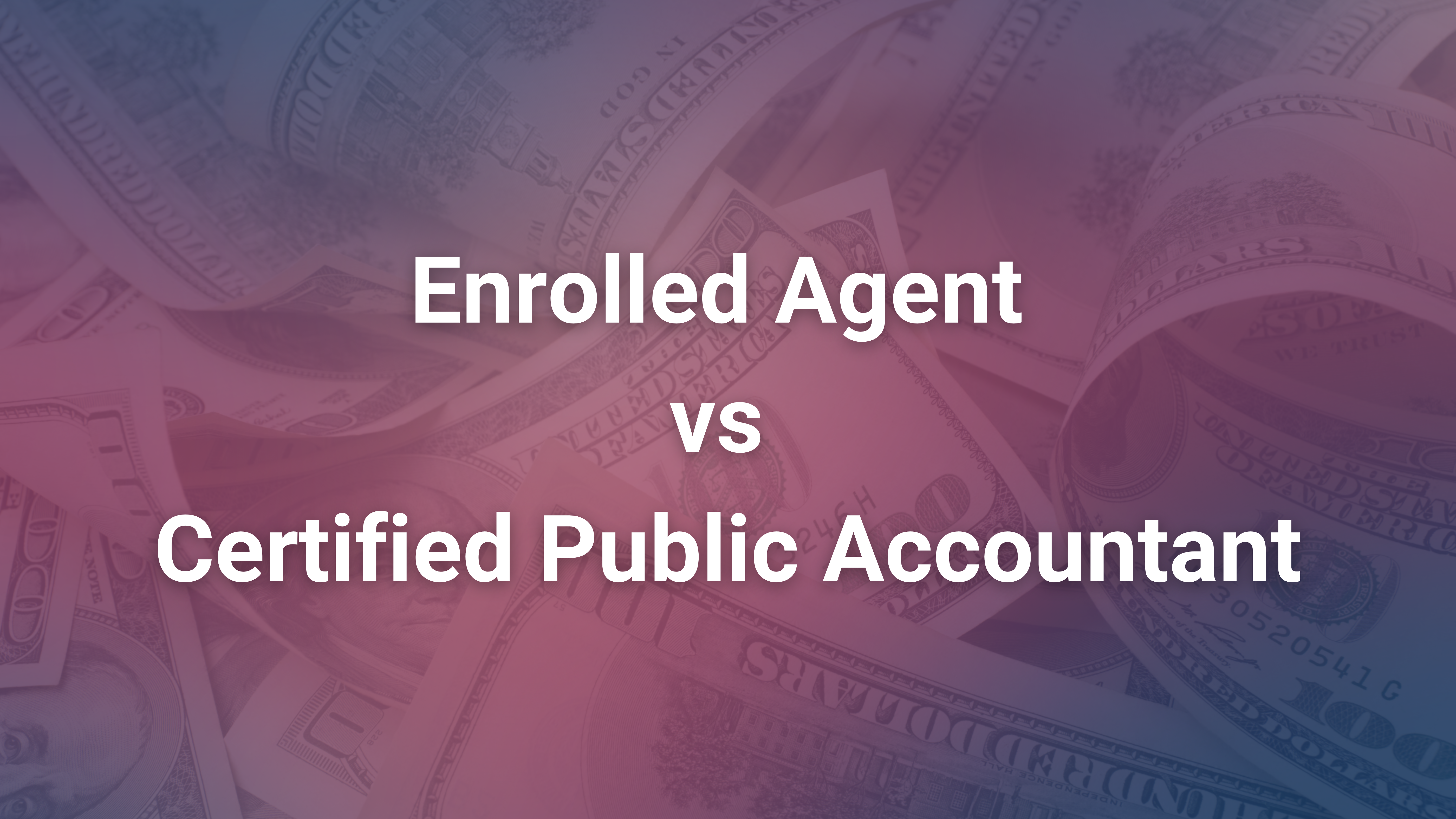In the world of accounting and finance, credentials can be confusing. Two of the most esteemed credentials in the tax realm are the Enrolled Agent (EA) and the Certified Public Accountant (CPA). Both designations have some overlap, but how do these career paths really differ? Here’s a deep dive into the world of EAs and CPAs so you can find the best fit for you.
What are they?
Enrolled Agent (EA):
An EA is a federally licensed tax practitioner who can represent taxpayers before the Internal Revenue Service (IRS). EAs focus primarily on tax preparation, tax advice, and representation before the IRS. EAs can work for a tax business, work for their own tax business, or actually work for the IRS.
Certified Public Accountant (CPA):
A CPA is a state-licensed accountant who has passed the Uniform CPA Examination and met specific education and experience requirements. The scope of a CPA is broader, encompassing audit and assurance, financial reporting, management accounting, and more.
What’s the main difference between EA and CPA?
The main difference really is that the scope of a CPA is much broader, and an EA is more specialized just in taxes.
How do you become one?
EA:
To become an enrolled agent, you must first obtain a PTIN (Preparer Tax Identification Number) and pass the Special Enrollment Examination (SEE). The exam consists of three sections: Individuals, Businesses, and Representation, Practices, and Procedures.
Additionally, you must pass a comprehensive background check. This is what the IRS calls a suitability check. They look at your personal tax compliance history, and criminal record.
CPA:
To become a CPA the requirements might vary from state to state. Usually, you must have some education, pass the Uniform CPA Exam, and have some supervised experience.
– Most states require 150 semester hours completed with at least 30 in accounting.
– Pass the Uniform CPA Examination.
– Most states require 1-2 years of accounting-related work under the supervision of a CPA.
– Some states also require an ethics course or exam.
Special Enrollment Exam (EA Exam) vs CPA Exam
What can they do?
EA:
- Represent clients before the IRS
- Offer tax advice and planning
- Prepare tax returns, and assist with tax debt, audits and appeals
CPA:
- Perform audit and assurance services
- Represent clients before the IRS (similar to EAs)
- Prepare financial statements
- Offer business and financial strategy advice
- Tax planning and return preparation
- General bookkeeping and payroll
- General consulting on various financial matters
The Geographic Scope
EA:
EAs have a federal license, which allows them to practice in all 50 U.S. states without needing additional state-specific credentials.
CPA:
CPAs are licensed by individual states. While the CPA designation is “recognized” nationwide, to actually practice in a different state, you might need to meet additional requirements or obtain a reciprocal license.
Continuing Education
EAs must complete 72 hours of continuing education every three years to maintain their license.
For CPAs, the requirements vary based on the state board, but typically, they need 40 hours of continuing education annually.
Initial Investment
Since becoming an EA doesn’t require college classes, it’s far cheaper (and faster) to become an EA. The only financial investments you make are for the price of the SEE exam, exam prep, and some IRS renewal fees, all of which should come out to a little over $1,000 max.
Becoming a CPA is quite the financial investment, since it requires college credits. Not to mention other fees associated with taking the test, etc. Overall, becoming an EA is a much more flexible option if you lack the funds and time to devote to college courses.
Career and Earning Potential
Both professions offer strong earning potential and unmatched stability. The specific salary will vary based on factors like location, specialization, and experience.
EAs generally work for accounting firms or run their own practices. They also can be employed by the IRS. Their earning potential can be influenced by the complexity of cases they handle and their clientele.
Average EA Salary as of February 2023: $60,725.
With a broader scope, CPAs often have more diverse career paths, from public accounting firms to corporate finance roles, to government positions, or even consultancy. Typically, CPAs have a higher earning ceiling, especially those in managerial or specialized roles.
Average CPA Salary as of February 2023: $77,370.
The decision between pursuing the EA or CPA designation often boils down to one’s career aspirations. If you’re passionate about taxation and wish to specialize in that niche, becoming an EA might be right up your alley. On the other hand, if you’re looking for a broader scope in accounting and finance, the CPA designation offers a more diverse career path.
Whichever path you choose, both credentials are esteemed and can pave the way for a fulfilling and prosperous career in the world of finance and taxation.
